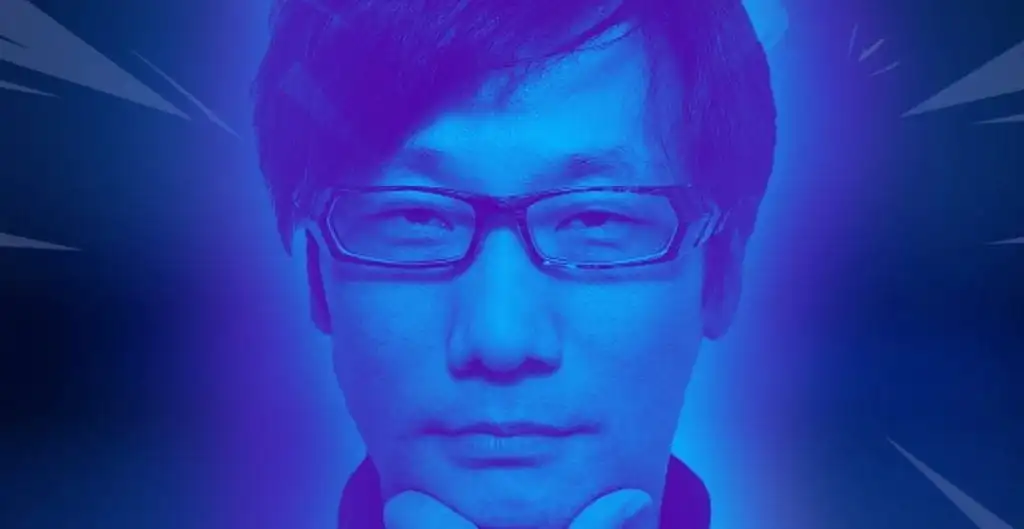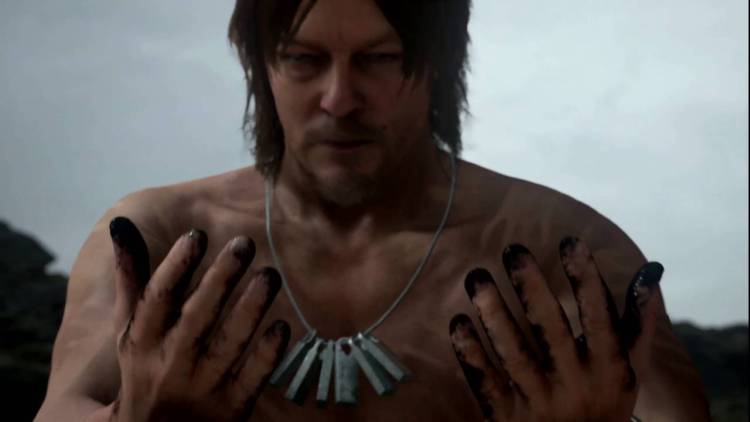It’s no secret that Hideo “70% of my body is made of movies” Kojima has dreams of being a film director. The star-studded Death Stranding purports to be the Metal Gear mastermind’s most cinematic project yet. When the Death Stranding promotional tour landed at EGX Berlin on Sunday, plenty of Kojima devotees assembled to hear the man speak. A sizeable crowd staked out their places a good two hours before the panel began. We were on hand to listen to Kojima discuss Death Stranding, the intersection of games and filmmaking, and the future of entertainment media. Also weighing in was the Golden Globe-winning German filmmaker Fatih Akin (Head-On, The Edge of Heaven). Akin is admired by Kojima and was one of the lucky few to have advance access to the game before launch.
With Fatih Akin.
TOMORROW IS IN YOUR HANDS.#デスストでつながれ#WorldStrandTour2019#DeathStranding #TomorrowIsInYourHands pic.twitter.com/CGQDL5jV62
— HIDEO_KOJIMA (@HIDEO_KOJIMA_EN) November 3, 2019
Most of the panel discussion wasn’t exactly bursting with new information for anyone familiar with gaming. More than a few times, the point “games are different from movies because they’re interactive” was repeated. Nonetheless, there were some interesting tidbits about Kojima’s approach to storytelling, relationship with the cast, and future predictions.
”Story should be destiny”
The Hideo Kojima school of storytelling is firmly in favor of the linear path. While the Japanese creator insists that the player should decide what to do in any given scene or ”it won’t be any fun,” he’s not a fan of multiple endings. In his mind, the dramatic points of a story — e.g., the death of a character or the finale — should be predestined, even if the player controls the details of how they get from A to B to C.
This linear, scripted approach is in line with filmmaking, but there’s another approach to game story. If video games and movies are to end up becoming ever more similar, games like sandboxes, RPGs, and roguelikes that emphasize player direction and emergent narrative make a case for the unique ways games can create spontaneous stories.
That’s not to say there won’t be any Hollywood connections being formed with more choice-based games. The other big showpiece at EGX Berlin, Cyberpunk 2077 with Keanu Reeves’ turn as Johnny Silverhand, could well encourage more silver screen talent to take an interest in non-linear narratives.
When it comes to the story of Death Stranding itself, Akin didn’t want to give much away. But he said that it felt like a very personal work, and praised the ”intercuts” (i.e., cutscenes) in Death Stranding while describing the gameplay as “pushing and really stressful.” For a certain subset of gamers, that doesn’t have to be a bad thing.
On the star-studded cast and the importance of connections
Kojima’s insistence that he scrabbled together his own company and Death Stranding from nothing has been met with justified skepticism, but it’s clear that he feels this way about his ousting from Konami. The breakup forced him to leverage his personal connections — friends and fans.
That’s how Kojima got the cast together for Death Stranding, including Norman Reedus, Mads Mikkelsen, Léa Seydoux, Margaret Qualley, Guillermo Del Toro, and Conan O’Brien. But this isn’t only true for Kojima’s celebrity friends. It also applies to the gathering of resources for his independent projects, like money and office space.
I’d walk into the bank or the building, and the people there would be fans of me.
The Metal Gear creator is up front about the personal inspirations behind Death Stranding. He describes himself as a lonely kid who got into movies because it made him feel less alone. The major theme of Death Stranding is all about making connections with other players that you don’t actually meet in-game. Instead, you can help each other cross the post-apocalyptic wasteland through the creations you leave behind.
Games and movies will come closer, but not merge
Kojima cites technological advancement as a key factor in the eventual convergence of movies and video games. The turning point was when films became digital. Previously movies were limited to 24 frames per second, and game creators were operating with 36 FPS. The advent of digital filming, according to Kojima, enabled games and films to “speak the same language.”
The Japanese creator sees a future where video games and movies will resemble each other more and more but never become the same thing. This means games borrowing more from the visual language of cinema and using real actors, but also movies incorporating interactive elements.
Akin cites virtual reality as an example of this, and there already exists plenty of VR content, aka “experiences,” that awkwardly straddles this line. So there will be a spectrum of media with varying degrees of interactivity, some of which would more resemble an immersive film with some viewer interaction than a full game. Kojima also sees streaming as the platform for the full spectrum of entertainment, and he moreover sees streamers and broadcasters as creators in their own right.
Stars in their eyes
Although the initial reviews of Death Stranding had already come out by the time of the talk, the panel was either not aware of or willing to discuss the reception of the game in the press so far. What’s clear though is that Death Stranding‘s critical reception and public reaction are inevitably colored by the perception of Kojima as an auteur (described by Akin as ”the Stanley Kubrick of games”).
There are many fans of Kojima that seem emotionally invested in his cinematic approach. The convergence of video games and films could be seen as a sign of maturity or legitimacy for the younger medium. Kojima is a symbol of that even if he only speaks about his way of doing things. The Death Stranding creator is far from the only talented video game storyteller, but there aren’t many others palling around with the likes of Guillermo del Toro and Nicolas Winding Refn.
Death Stranding releases November 8 on PlayStation 4, with a PC release slated for mid-2020. By that time the Hollywood glamor should have faded somewhat, and we’ll be able to see if it’s a true blockbuster or if, like many critically mixed releases from auteur filmmakers, more of a cult classic.










Published: Nov 6, 2019 03:20 pm